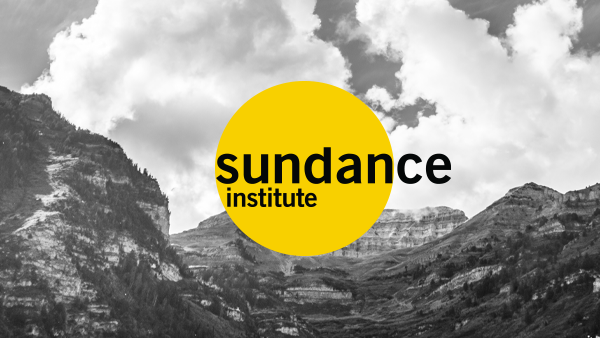Patricia Finneran
We left Tunis on December 14 after presenting six films (12 screenings) over an intense four-day period that also included press appearances, meetings, and a terrific film school visit.
Just a few days later a young Tunisian man dreaming of a better life and seeking to just make ends meet, was hassled by the police for selling fruit without a license. Apparently seeing no future for himself, in an act of desperate defiance, he lit himself on fire. This prompted student protests, which, facilitated by social networking on Facebook, lead to the “Jasmine Revolution.”
Looking back on our conversations with students, recent graduates, and filmmakers, I did indeed hear a sense of frustration about the future. Certainly audiences in our post-screening discussion did not speak openly against President Ben-Ali. But, one-on-one they did express their desire to either travel abroad for jobs, or better yet for real career opportunities in their own country.

Tunisia is a highly literate society and has had universal education for both men and women for half a century. The Internet is widely available, even if some sites are blocked. But media is (or rather, was) state controlled. Each of our films had to be reviewed and approved by the cultural ministry before any public presentation.
The coastal city of Tunis is full of low white buildings (all with blue shutters and doors) sparkling under clear skies and warm sun. There’s a lovely consistency to the landscape, which reflects the invisible rules of a controlled society as even house colors are dictated by the government. When touring the Roman ruins just a few hundred yards from the Presidential Palace, we were prevented from photographing in the direction of the palace, which is an ordinary looking enormous mansion surrounded by multiple fences and armed guards. It seemed silly to me at that moment, but one ponders the small daily inhibitions on freedom and how they add up.
Our local partner Hisham Ben Khamsa had produced similar screening programs under the moniker ‘Views of America’ film festival for two years previously, each with the support of the U.S. Embassy in Tunisia. It was fantastic to see the festival poster on billboards at the airport and around town. The art work features a giant box of popcorn; it seems cinema-going and movies go together around the globe. The program was also featured in L’Ecran, a glossy cinema magazine and was well-promoted on Facebok, all of which lead to good audience turnout for the series.
The screenings and discussions took place at the AfricArt Cinema, a downtown theatre which seats 350 (it is just off the major Avenue you saw in those protest marches you may have seen on You tube), and is a short walk form the historic Medina (old market).
Thursday, December 9
The highlight of the first day of the program was the presentation of a 35mm print (hand carried on to the plane from Paris by Stacey Marbrey) of Udaan to a group of over 100 Tunisians, most of whom stayed for the Q&A with Director Vikram Motwane. The film speaks directly to the dreams of youth in contemporary India, and globally as teenage Rohan, as he questions the obsessive discipline and rigidity that makes his Father’s life stable but miserable. He forges his own path toward creative self-expression, and openness. One young woman who had traveled from the suburbs in to Tunis to see the film told Vikram and the audience that she saw it as ‘a call for freedom.’
Patricia and Vikram were interviewed for Tunisian T.V. which covered the evening’s event. Our host, Hisham and Patricia did an interview over dinner with the leading film critic for La Presse, the major French language newspaper.
The evening screening of La Mission was introduced by John Berry the Cultural Affaris Officer of the U.S. Embassy. Our local host Hisham and I also spoke to introduce the program to a nearly full theatre of at least 300 people!
Friday, December 10
Early in the day, Vikram and I went to ESAC a private college/graduate school for film and media and did a 2.5 hour master class for about 60 students from various classes. We focused on Udaan but also showed the trailers for the various Film Forward films, to students who also planned to attend screenings over the weekend. There was great interest in the question of defining independent cinema. Even greater interest in how to access the Sundance Film Festival and programs!
In the afternoon, the FILM FORWARD team, lead by our multi-lingual host Hisham, appeared on ‘Drama Drama’ a cultural radio show on a private news and public affairs station.
Later in the evening Producer Alicia Sams appeared with Amreeka. Alicia speaks some Arabic, which is rather impressive to audiences here, and converses in French. The post-screenings discussion was a lively free-flowing mix of languages and translations. But the sentiments were clear: the audiences at the AfricArt Cinema loved the film.
You can read Alicia’s report here on her experience in Tunis.
Saturday, December 11
In addition to screenings, the Film Forward team Tunisian Producer Association to discuss American independent filmmaking industry and Sundance Institute. The discussion was moderated by Habib Attia, a producer who also happens to have a project supported by AFAC (Arab Fund for Arts and Culture) and had recently met with Sundance Institute Documentary Film Program Director Cara Mertes in Abu Dhabi.
Sunday, December 12
By Sunday we had a core group of repeat audience members who had seen all of the films and were warming up to the idea of a post-screening discussion. We could not have known the timeliness of Freedom Riders, which is of course about youth uprising for social change, but we did have an extended conversation about that film.
The discussion, which included several filmmakers, students, professionals, and a university linguistics professor who helped frame are the words we use in English, French, and Arabic (in north Africa) for a “black” person, and difference between literal and cultural meanings for ethnic and cultural terms. By exploring the ways other languages describe cultural specificity we are forced to confront the limits of our own terminology. Few things other than a public film screening could have brought together such a diverse group of people. Having shared a series of engagements over that weekend with a small group, and welcoming in new folks, we were no longer strangers, and our minds were opened.




